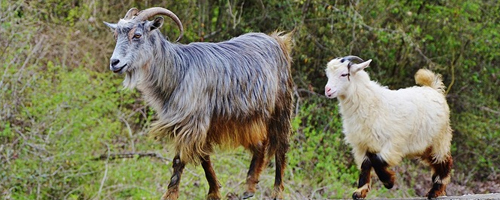Interesting Facts
Milk and Health Conditions
Most people restrict dairy foods when they try to lose weight, believing them to be fattening. Dairy foods contain saturated fats, which have been associated with increased blood cholesterol levels. However, dairy foods are not a threat as long as they are consumed in moderation as part of a nutritious diet.

Recent studies have reported that children who avoid milk tend to be bigger than children who drink milk. This may be because milk is being replaced by high energy drinks such as fruit juice or soft drinks. As children move into adolescence, the time they need the most calcium, they tend to drink less milk and more soft drinks. So moms and dads please encourage your children to drink more milk or Flavored milk.
Milk and milk products also prevent tooth decay by reducing oral acidity, stimulating saliva flow and decreases plaque formation. Osteoporosis is a disease characterized by bone loss, by removing dairy products from your diet you reduce the intake on calcium which can lead to disorders like osteoporosis.
Recent studies have found that people who regularly eat dairy products have a reduced risk of developing colon cancer.
Milk and Mucous
Many people believe that nasal stuffiness is related, in part, to how much milk you drink. However, there is no scientific basis to this theory.
Milk doesn’t encourage extra mucous production.

Cows milk versus Goats milk...
Some people switch to goats milk because of perceived sensitivities to cows milk. If a person has an allergic sensitivity, it is usually due to one or more of the proteins in milk. The proteins in goat milk are closely related to those in cow’s milk so replacing one type of milk with the other usually doesn’t make any difference.
Milk allergies are more common in very young children and most tend to grow out of them or build up a tolerance to milk.
Lactose Intolerance
Lactose is a type of carbohydrate or sugar that naturally occurs in milk from any mammal, including humans. Normally, an enzyme in the small intestine called lactase breaks down lactose so it can be absorbed into the bloodstream. Some people don’t produce enough lactase so undigested lactose is broken up by the bacteria in the large intestine causing gas, bloating, pain and diarrhea. This condition is called lactose intolerance. You can be born lactose intolerant or develop it later in life. If you think you may be lactose intolerant, see your doctor.
Some dairy products contain less lactose in them. For example: fermented milk products, some yoghurts, mature cheeses (like cheddar cheese, fetta and mozzarella) and butter generally pose no tolerance problems.
Facts on Milk
- Milk is an excellent source of vitamins and minerals, particularly calcium.
- Calcium : A mighty mineral that builds strong bones and teeth
- Vitamin D : An important bone builder that enhances calcium absorption.
- Vitamin A : Keeps your skin healthy, regulates immune system and helps your eyes see normally in the dark.
- Potassium : Maintains your blood pressure, regulates fluid balance and helps your muscles contract.
- Protein : Vital for building and maintaining muscle.
- Riboflavin : Helps produce energy in all cells of your body.
- Niacin : Helps enzymes function normally in your body.
- Vitamin B12 : Works closely with folate to make red blood cells and plays a key role in cell growth and division.
All this in one glass of milk ... WOW!
Milk products also contain high quality proteins that are well suited for human needs. Milk proteins increase the value of pooper quality cereal and vegetable proteins.
Interesting facts about cows
- Cows have a total of 32 Teeth
- A Cows intestines are about 51.8 meters long
- A Cows temperature is 38.6 degrees Celsius
- The average milk production of a cow is per year is about 8992.50kg’s
- The average weight of a Holstine cow (Black and White) is 590kg
- No cows have the same pattern spots
- A cow has to be a mother before it can produce milk
- The average weight of a Holstine calf is 45.3kg’s
- A Cow has one stomach with four sections
- A Cow spends 8 hours a day eating and 13 hours lying down
- Cows live to on average 6 to 7 years
- A Cow produces an average of 26 liters of milk per day
- There are 207 bones in a cows body
- A Cow eats about 54kg’s of food a day and drinks about a half tub water a day
- A Cow gives about 200,000 glasses of milk in a year that’s 90 glasses per day

